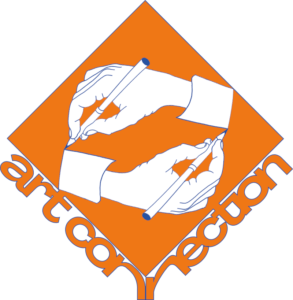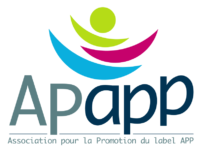Retour sur la conférence européenne « Rôle et enjeux des compétences culturelles »
Organisée dans les locaux du Ministère des solidarités et de la santé, la conférence du 29 juin 2022 était le ...
04 July, 2022
Les Nymphéas, Claude Monet, 1920-1926

In France, the APapp is at the head of a national network that carries an educational label, the APP label (Personalized Pedagogy Workshops, Ateliers de Pédagogie Personnalisée). The APP label qualifies and certifies a very particular pedagogical approach, which is called the “démarche APP”.
The purpose of the APP approach is to support people’s self-directed learning; that is to say, to support the development of people’s empowerment (self-esteem, self-confidence, autonomy, development of soft skills). Thus, the APP network offers a strong potential for observations of innovative pedagogical practices.
As the leader of the Art-Connection consortium, APapp liaised with the French agency Erasmus+ for the management and general conduct of the project as well as the general and qualitative coordination for intellectual productions. APapp contributed to all intellectual productions and produced the 5th deliverable (European Memorandum). APapp has been in charge for organizing the 3rd dissemination event that took place in Paris on June 29, 2022.
Referent of the Art-Connection project in France:
Isabelle Salvi – Head of projects R&D in pedagogy – Referent of the “Apprenant Agile” certification device
See the Art-Connection case studies from participatory action research in the territorial contexts of partners in the Toolkit for Cultural Connectors, chapter 2.1 and the 3 UNhandbooks from APapp – Cultural experiences and self-directed-learning – Cultures and learning process – Cultural learning territory.
To conduct its participatory action research, the APapp focused on two fields of experimentation, to make a reflective study and an analysis of APP practices, as part of 2 cultural projects
These 2 projects were built according to the APP pedagogical modalities resulting from the accompanied self-directed learning – a very complex learning process that involves the whole person and at all levels of bodily, cognitive or theoretical interaction, but also affective, imaginary, emotional or in symbolic resonances.
To quote Bertrand Schwartz, an eminent French pedagogue, in APPs we practice a “pedagogy of creativity, socialization and personal development“.
It is never a question of learning alone, but on the contrary, of understanding one’s experience (self) in relation to others (socio) and the socio-cultural environment (eco) corresponding to the tripolar process of training conceived by Gaston Pineau, professor emeritus working at the University of Quebec, Montreal.
The APP label qualifies and promotes the self-directed learning practices developed by the APP network’s practitioners, according to the principles of a learning organization following a systemic approach.
These practices include specific gestures of the accompagnement of self-directed learning, operating methods and pedagogical positioning on 3 levels:
APapp’s action research was an opportunity to highlight the benefits of cultural entry points (actions, activities, cultural experiences) as part of its “Apprenant Agile” certification process and in particular the methodology of kairos, inspired by the work of Pascal Galvani, for the recognition, valorization and validation-certification of acquired experience.
Cultural entry points make it possible to amplify the APP offer and to reach out to the most vulnerable audiences, disenfranchised from all circuits, to accompany them towards access to or upgrading of fundamental knowledge (reading, writing, counting) or access to or upgrading of digital tools, or to learn French language in the case of foreign audiences, immigrants or refugees.
Organisée dans les locaux du Ministère des solidarités et de la santé, la conférence du 29 juin 2022 était le ...
04 July, 2022Le symposium, qui s’inscrit également dans du cadre du projet national [Re]connaissances, porté par l’APapp, é...
02 May, 2022Un symposium était chez les Romains le banquet pendant lequel on discutait d’un thème déterminé concernant les...
11 March, 2022L’équipe du projet Art-Connection s’est retrouvée le 4 novembre 2021 au théâtre du Prato, à Lille, pour une jo...
17 November, 2021